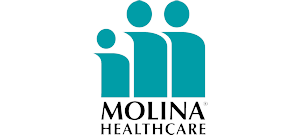
At Supreme Recovery, we utilize evidence-based approaches. Our goal is to provide a structured, supportive environment where individuals can heal and build a foundation for lasting sobriety. With personalized programs to address the physical, emotional, and psychological aspects of addiction, we can ensure long-term recovery and wellness.
If you or a loved one is struggling with substance abuse, Supreme Recovery offers comprehensive outpatient treatment programs tailored to meet your unique needs.
What We Treat
Alcohol is one of the most commonly abused substances. Compulsive alcohol use despite negative impacts, leads to physical dependence and withdrawal. Chronic use damages the liver, heart, and brain. Treatment involves detox, therapy, and medication.
While often perceived as harmless, marijuana can lead to dependency, affecting motivation, memory, and mental health. Psychological dependence develops, leading to withdrawal symptoms upon cessation, including irritability, anxiety, sleep disturbances, and decreased appetite. Chronic use can impair cognitive functions vital for daily tasks and has been linked to increased risks of certain mental health issues, particularly in vulnerable individuals.
Opioid addiction is a highly dangerous condition marked by the compulsive seeking and use of drugs like heroin, fentanyl, and oxycodone, often leading to fatal overdose due to respiratory depression. These drugs create strong physical dependence, resulting in severe and debilitating withdrawal symptoms like intense pain, nausea, and anxiety, making professional medical treatment essential.
Cocaine addiction involves the compulsive seeking and use of this powerful stimulant, which floods the brain with dopamine, creating intense euphoria and strong psychological dependence. Even occasional use carries significant risks of serious cardiovascular events like heart attacks and strokes. Withdrawal, though not typically physically life-threatening, is marked by intense cravings, depression, fatigue, and anxiety, making sustained abstinence challenging.
Methamphetamine addiction is an extremely destructive and rapidly progressive condition characterized by the compulsive use of this potent stimulant. Meth causes significant and rapid physical deterioration, including severe weight loss and dental problems, and profound mental health issues like paranoia, hallucinations, and aggression. Withdrawal is often intense and prolonged, featuring severe depression, fatigue, and psychosis.
Prescription drug addiction involves the compulsive misuse of legally obtained medications like benzodiazepines, ADHD stimulants, and opioid painkillers, leading to dependence and a significant risk of overdose. These drugs, while having legitimate medical uses, can alter brain chemistry and create strong cravings and withdrawal symptoms.

Recovery Begins Here
Signs of Addiction
Physical signs of addiction may be:
Weight Loss: Substance use can suppress appetite, interfere with nutrient absorption, or lead to a focus on obtaining and using the substance rather than eating regular, healthy meals. This can result in a noticeable and often unhealthy decrease in body mass.
Bloodshot Eyes: Substances like marijuana or alcohol can cause the blood vessels in the eyes to dilate, leading to a flushed or red appearance.
Lack of Personal Hygiene: As the addiction progresses, obtaining and using the substance often becomes the primary focus, leading to a neglect of basic self-care routines like showering, brushing teeth, and wearing clean clothes. This can manifest as a disheveled appearance and a general lack of attention to cleanliness.
Look out for abnormal or sudden changes in behavior, such as:
Secretive Behavior: Individuals may hide their substance use, lie about their whereabouts or activities, and become defensive or evasive when questioned about their habits. This secrecy is often an attempt to conceal the extent of their problem and avoid judgment or intervention.
Financial Problems: Experiencing increasing and unexplainable financial problems is a significant behavioral indicator of addiction. Individuals may borrow money, sell possessions, or engage in risky financial behaviors to support their habit.
Neglecting Responsibilities: A noticeable pattern of neglecting responsibilities at work, school, or home is a key behavioral sign of addiction. This can manifest as decreased productivity, missed deadlines, absenteeism, failing grades, and a general failure to fulfill obligations.
When using drugs and alcohol, psychological signs may appear.
Mood Swings: Substance use can directly alter brain chemistry, leading to rapid shifts in emotions, including periods of euphoria, irritability, anxiety, and depression. These mood swings can be erratic and difficult to understand for those around the individual.
Depression: Developing or experiencing worsening symptoms of depression is a common psychological sign associated with addiction. Addiction and depression often co-occur and can exacerbate each other.
Paranoia: Increased feelings of paranoia or suspiciousness can be a psychological sign of addiction, particularly with stimulant drugs like cocaine or methamphetamine, but also with chronic use of other substances. Individuals may become overly distrustful of others, believe they are being watched or followed, or develop irrational fears and suspicions.
Isolation: Individuals may isolate themselves from friends and family who don’t use substances or who express concern about their use. This isolation can be a way to hide their addiction and continue using without judgment or interference.
Losing Interest in Hobbies: The substance becomes the primary focus of their time and energy, replacing activities that once brought pleasure and fulfillment. This can lead to a narrowing of their interests and a general disengagement from life outside of substance use.
Relationship Conflicts: Substance use can lead to irritability, dishonesty, broken promises, and erratic behavior, which can strain and damage interpersonal connections. These conflicts often arise from the individual’s substance use and the impact it has on their behavior and interactions with others.

Finding Treatment For Yourself or a Loved One
- Accreditation & Licensing (evidence-based practices)
- Customized Treatment Plans (tailored to individual needs)
- Aftercare Support (sober living referrals, alumni programs)
- Insurance Acceptance (verify coverage options)
At Supreme Recovery, we guide you through every step—from assessment to aftercare—to ensure the best chance at lasting recovery.











